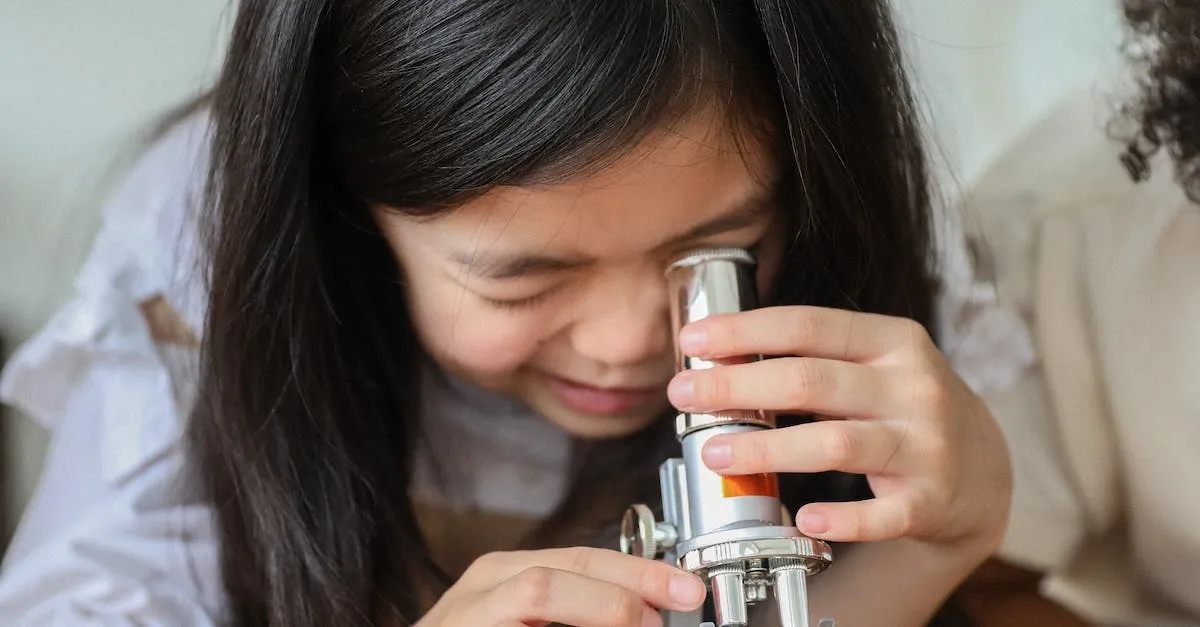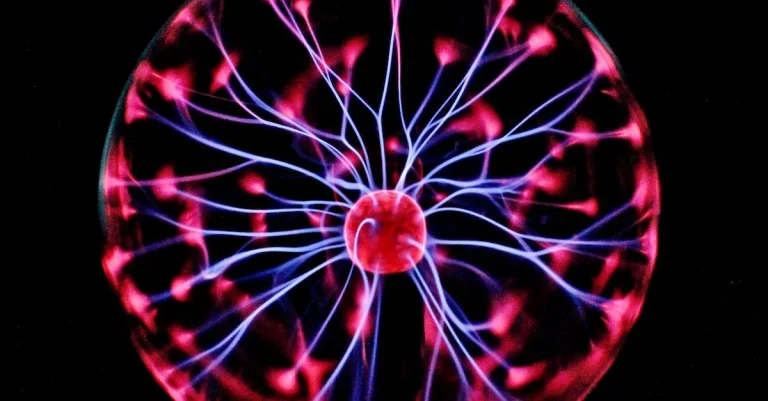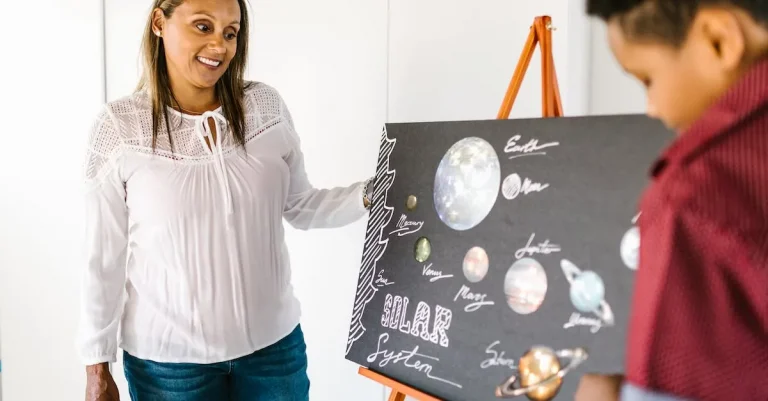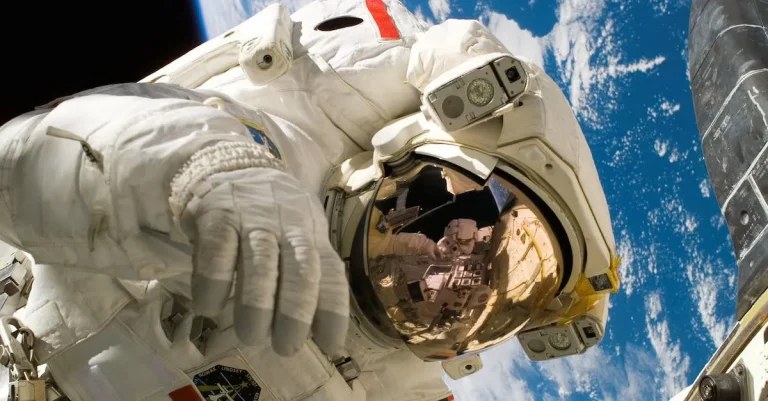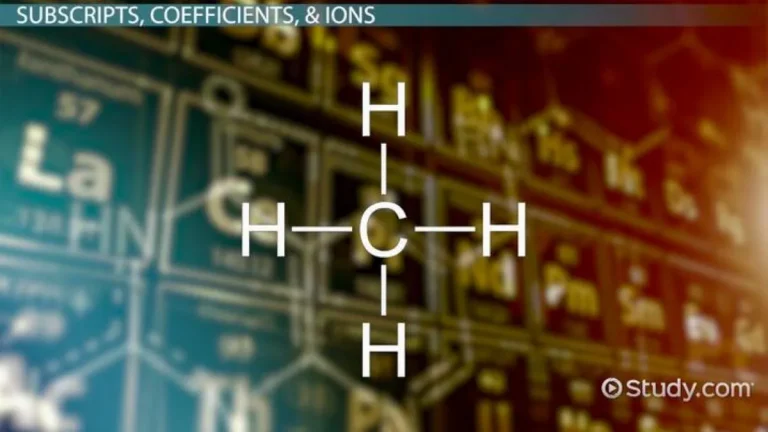What Do You Learn In Science?
Science is a fascinating subject that teaches us about the world around us. From physics to biology to chemistry, science helps us understand the natural phenomena that shape our lives.
If you’re short on time, here’s a quick answer to your question: Science teaches about the natural world through subjects like physics, chemistry, biology, astronomy, geology, oceanography, meteorology, and more.
Students learn scientific concepts, methods, critical thinking skills, and lab techniques.
In this detailed article, we will explore the key things you can expect to learn in science classes throughout school.
The Scientific Method
The scientific method is a systematic approach used by scientists to investigate and understand the natural world. It provides a structured framework for conducting experiments, gathering data, and drawing conclusions.
By following this method, scientists can ensure that their research is reliable, reproducible, and based on evidence.
Making observations
The first step in the scientific method is making observations. Scientists use their senses to gather information about the world around them. They carefully observe and document what they see, hear, smell, taste, and touch. These observations serve as the starting point for scientific inquiry.
Asking questions
After making observations, scientists ask questions about what they have observed. These questions help them identify patterns, uncover relationships, and explore the unknown. By asking questions, scientists can narrow down their focus and determine the specific problem they want to investigate.
Developing hypotheses
Once scientists have identified a question, they develop hypotheses. A hypothesis is a proposed explanation or prediction based on existing knowledge or observations. It is a statement that can be tested through experimentation or further observation.
Hypotheses serve as a starting point for scientific investigations.
Designing experiments
With a hypothesis in hand, scientists design experiments to test their predictions. They carefully plan and control the conditions of the experiment to ensure that any observed changes or effects are a result of the variables being tested.
The design of the experiment is crucial to obtaining reliable and valid results.
Analyzing data
Once the experiment is conducted, scientists analyze the data they have collected. They use statistical methods and data visualization techniques to make sense of the information gathered. By analyzing the data, scientists can identify patterns, trends, and relationships that support or refute their hypotheses.
Drawing conclusions
Based on the analysis of the data, scientists draw conclusions about their hypotheses. They evaluate whether the data supports or contradicts their predictions. If the data supports the hypothesis, scientists may form a theory or a general principle that explains the observed phenomena.
If the data contradicts the hypothesis, scientists revise their ideas and develop new hypotheses for further investigation.
The scientific method is a dynamic process that allows scientists to continually refine their understanding of the world. It encourages critical thinking, curiosity, and a commitment to evidence-based reasoning.
By following the scientific method, scientists can make significant contributions to our knowledge and improve our understanding of the natural world.
Core Science Disciplines
Physics: Motion, energy, gravity, electromagnetism, thermodynamics
Physics is the study of matter and energy and how they interact with each other. It explores the fundamental principles that govern the universe. In physics, you will learn about motion, including concepts like velocity, acceleration, and forces.
You will also delve into the fascinating world of energy, understanding its different forms and how it can be transformed from one form to another. Additionally, you will explore concepts such as gravity, electromagnetism, and thermodynamics, which help explain phenomena like the behavior of light, the workings of electrical circuits, and the laws of thermodynamics.
Chemistry: Atoms, molecules, chemical bonds, chemical reactions
Chemistry deals with the composition, structure, properties, and changes of matter. It is often called the central science because it connects the physical and biological sciences. In chemistry, you will learn about atoms and molecules, which are the building blocks of matter.
You will study the different types of chemical bonds that hold atoms together to form compounds. Chemical reactions, where substances undergo chemical changes, will be a key focus of your studies. Understanding chemistry is crucial for comprehending the world around us, from the properties of everyday substances to the complex reactions occurring in our bodies.
Biology: Cells, DNA, ecosystems, anatomy, physiology
Biology is the study of living organisms and their interactions with the environment. It encompasses a wide range of topics, from the microscopic world of cells to the complex ecosystems that exist on our planet.
In biology, you will learn about the structure and function of cells, the basic units of life. You will also delve into genetics and DNA, understanding how genes determine our inherited traits. Additionally, you will explore topics such as ecosystems, anatomy, and physiology, gaining insights into how organisms interact with their environment and how their bodies function.
Earth Science: Geology, oceanography, meteorology, astronomy
Earth science focuses on the study of the Earth and its systems. It encompasses various disciplines, including geology, oceanography, meteorology, and astronomy. Geology explores the Earth’s structure, processes, and history, helping us understand the formation of rocks, minerals, and landscapes.
Oceanography delves into the study of oceans, including their physical and chemical properties, marine life, and the impact of human activities. Meteorology investigates the Earth’s atmosphere, weather patterns, and climate.
Lastly, astronomy explores the vastness of the universe, studying celestial objects such as stars, planets, galaxies, and the origin of the universe itself.
Key Science Skills
Science is a fascinating subject that teaches us about the natural world and how it works. In the study of science, students not only gain knowledge about different scientific concepts but also develop a range of important skills.
These skills are essential for understanding and exploring the complex world around us. Here are some key science skills that students learn:
Observing closely
Observation is a fundamental skill in science. It involves using our senses to gather information about the world around us. By observing closely, scientists can make important discoveries and gain a deeper understanding of phenomena.
For example, when observing the behavior of animals in their natural habitat, scientists can gather data and draw conclusions about their interactions and adaptations.
Measuring accurately
Precise measurement is crucial in science. It allows scientists to collect reliable data and make accurate calculations. Whether it’s measuring the temperature of a liquid, the length of an object, or the mass of a substance, scientists need to be able to measure accurately.
This skill helps in conducting experiments and analyzing data.
Classifying objects or phenomena
Classifying is the process of grouping objects or phenomena based on their similarities and differences. It helps scientists organize information and identify patterns. For example, in biology, organisms are classified into different kingdoms, phyla, and species based on their characteristics.
Developing mathematical models
Mathematics plays a crucial role in science. Scientists often use mathematical models to describe and explain natural phenomena. These models help scientists make predictions and test hypotheses. For example, in physics, mathematical equations are used to describe the motion of objects and the behavior of forces.
Working collaboratively
Collaboration is an important skill in science. Scientists often work in teams to conduct experiments, analyze data, and solve complex problems. Working collaboratively allows scientists to benefit from different perspectives, share ideas, and enhance their understanding of a particular topic.
Designing controlled experiments
Designing controlled experiments is a critical skill in science. Scientists need to plan and execute experiments in a way that ensures reliable results. This involves identifying variables, controlling for confounding factors, and collecting data systematically.
By designing controlled experiments, scientists can test hypotheses and draw meaningful conclusions.
Using lab equipment properly
Proper use of lab equipment is essential for conducting experiments safely and effectively. Scientists need to be familiar with various tools and equipment used in the laboratory, such as microscopes, beakers, pipettes, and Bunsen burners.
They must follow safety protocols and handle equipment with care to minimize the risk of accidents.
Analyzing data
Data analysis is a crucial skill in science. Scientists need to be able to interpret and make sense of the data they collect. This involves organizing data, identifying trends or patterns, and drawing meaningful conclusions.
Statistical analysis techniques are often used to analyze data and determine the significance of results.
Drawing conclusions
Drawing conclusions is the process of making inferences based on evidence and data. Scientists analyze their findings and draw conclusions that are supported by the evidence. This step is crucial for making scientific claims and contributing to the body of scientific knowledge.
Communicating scientific findings
Effective communication is vital in science. Scientists need to be able to communicate their findings and ideas clearly and concisely. This can be done through scientific papers, presentations, or even public outreach.
By effectively communicating their findings, scientists can share knowledge and contribute to the scientific community.
These are just a few of the key science skills that students learn. By developing these skills, students not only become proficient in scientific concepts but also gain valuable problem-solving, critical thinking, and analytical skills that can be applied to various aspects of their lives.
Science truly equips individuals with the tools they need to explore and understand the world around them.
Lab and Field Work
Hands-on experiments
In science, students have the opportunity to engage in hands-on experiments, which allow them to apply the theories and concepts they have learned in class. These experiments can range from simple chemical reactions to more complex physics simulations.
By conducting these experiments, students not only gain a deeper understanding of the subject matter but also develop important skills such as critical thinking and problem-solving.
Using microscopes
Another aspect of lab work in science involves using microscopes. Students learn how to prepare slides and examine various specimens under a microscope. This allows them to observe the intricate details of cells, microorganisms, and other tiny structures that are not visible to the naked eye.
By honing their microscopy skills, students develop a greater appreciation for the complexity and diversity of the natural world.
Dissections
Science classes often include dissections, where students get a hands-on experience of exploring the internal anatomy of organisms. Whether it’s dissecting a frog, a fish, or a sheep’s brain, these activities provide students with a unique opportunity to understand the structure and function of different organs and systems.
Dissections also foster a sense of curiosity and respect for the complexity of life.
Outdoor ecological studies
Science education goes beyond the confines of the classroom. Students often participate in outdoor ecological studies, where they learn about the environment and its ecosystems firsthand. They may collect samples, analyze data, and observe plants and animals in their natural habitats.
These field studies not only enhance students’ understanding of ecological concepts but also instill a sense of environmental stewardship.
Astronomy observations
Studying astronomy is a fascinating part of science education. Students have the opportunity to observe celestial objects such as planets, stars, and galaxies using telescopes. They learn about the universe’s vastness and the laws that govern its behavior.
Astronomy observations allow students to appreciate the wonders of the cosmos and foster a sense of curiosity about our place in the universe.
Geology field trips
Geology field trips take students out into the real world to explore the Earth’s geological features. They may visit mountains, canyons, or coastal areas to study rock formations, fossils, and the processes that shape the Earth’s surface.
These field trips provide students with a hands-on understanding of geological concepts and allow them to witness the immense power and beauty of our planet.
Conclusion
Science opens up a world of discovery about the natural phenomena around us. Key learnings include the scientific method, core disciplines like biology and physics, critical thinking skills, and hands-on lab techniques.
By studying science, students gain a deeper appreciation for the world and develop skills to analyze information, design experiments, and draw conclusions based on evidence. Science lays the foundation for important careers like medicine, engineering, technology, and research.

